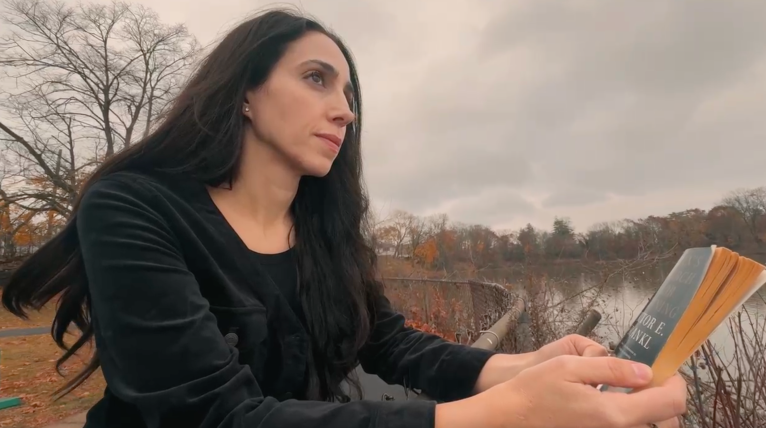
Read This When You’re Working On Being The Best Version Of Yourself
I’ve come to observe and learn from my own experiences that there are four universal truths one has to accept first.
There’s an obsession with “self-growth” and becoming the “best” and “biggest” version of ourselves today. And it’s not a bad obsession to have. If anything, it’s forced the spotlight to shine on the formerly whispered topic of mental health and empowered the idea of individuality and self-discovery journeys.
Becoming the “best” version looks different for each person. The idea of “best” and the steps or decisions along that journey aren’t the same across the board. It’s also possible (at least it has been for me), that this journey is not only on-going but encompasses a few stop-overs, detours and the occasional U-turn.
However, in the process of becoming the “best” you for any one person, I’ve come to observe and learn from my own experiences that there are four universal truths one has to accept first.
1. Only YOU are responsible for your life.
It’s easy to blame other people. It’s easy to find fault in others, to play the victim. It’s easy to say “Life isn’t fair” or “they kept me from going after my dreams.” It’s easy to do all this, and it’s also completely wrong.
Your life is a series of choices. To stay in our hometown or to move across the country. To take a new job, to stay in the one you’re at. To continue a relationship that’s unhealthy or to walk away. To be exceptional or to be mediocre. To do the hard work required for your goals or to be comfortable and never achieve growth. Each of these is a choice you make.
Experiences, people and environments influence your decisions, but at the end of the day it always comes down to you. Nobody makes you stay or go, do or not do anything – it’s always YOUR choice. Nobody makes you be kind or cruel, it’s your choice. Nobody defines what is important to you or what your career and your social life should look like. It’s you who decides what success and happiness are for you.
It’s a harsh fact to face, that we are both the creator and destroyer of our life. And with this fact comes the reason we seek to blame others instead of owning our decisions: one of the hardest things to accept is that we alone are responsible for the way our life is. External factors may create change or the opportunity for it, but how we react and move forward is up to us. For example: I didn’t give myself hearing loss, unlucky genetics did, but I made the choice to not let it hold me back from hiking alone, from going after jobs that required a lot of listening. Life handed me an obstacle, but it was my choice to overcome it.
Being able to look inside ourselves and own our choices (for better or worse) comes with emotional maturity. But, once you accept that it is your responsibility to shape your present and future, nothing can stop you. The moment you accept you’re the captain of your own journey, the fear of change or failure goes away, and the doors of opportunity are infinite.
2. Sometimes you need help.
You are responsible for your life and the choices you make, but sometimes, the choice you need to make is to ask for help. It could be for the job of your dreams, or it could be for your own emotional and mental well-being.
Why you ask for help doesn’t matter. What’s key is recognizing that it’s absolutely okay to ask for help. It’s healthy and beneficial even. We’ve mistakenly been taught that asking for help is the equivalence of weakness. It’s not. Asking for help signifies strength, trust and maturity. Those who ask for help are not afraid to admit fault or own their weaknesses. They seek others who are more accomplished, because they are driven and courageous enough to want to change and improve.
And when you ask for help, not only are you choosing to become a better version of you, but you are creating pathways for others to do the same, building connections with the world around you that may create a butterfly effect of positive change.
You’re not going to get far in life without help, but here’s the most beautiful part of this, you’ll always get the chance to pay it forward.
3. Growth isn’t about the highs, but the lows.
When you’re at “rock-bottom” there’s nowhere to go but up. This is true; however, I think the visual of a roller coaster is a lot more accurate when we are talking about becoming our best selves. Yes, life will kick your ass and you have to pick yourself up, dust off and move forward, but the idea of “rock-bottom” makes it sounds like you only end up here once.
Wrong.
Becoming your best self isn’t a one-time down-up situation. It’s a roller coaster journey full of highs and lows, and what you do during the lows is what matters.
The lows can manifest as many things – failure, rejection, heartbreak, grief. Anything inherently dark and twisty qualifies. And during these times you’re given the gift to grow – to learn something about yourself you didn’t yet know, to become stronger, more driven, to develop new skills, to be pushed to take risks. If we embrace the lows for all they offer us, when we come out of them, we’ve gained another new piece of ourselves.
And as the lows and highs continue over time, as we ride the roller coaster that is life, we are one step closer to our best self.
4. Change isn’t contextual, it’s an internal choice. And it can’t be forced.
The most imperative part of betterment is change. To become our best self, we have to learn to embrace the discomfort of change. But change is a choice not happenstance.
The changes we have to make to become our “best” are those that we control; those involving our mindset and behavior. If we want to be better, we have to first shift or eradicate the behaviors and mindsets that hold us back, that make us the worst version of ourselves. If we want to be better people, be happier, have more meaningful relationships and lives – we have to be brave enough to change, to embrace that journey.
But the choice to make these changes is not always easy, and nobody and nothing can force us to be ready before we are. A person has to choose to change of their own volition. You can try to get an addict to change a million times, but until that person is ready, nothing you do or say matters.
We have to be open to growth through change, but more importantly, we have to be ready.
One more thing I’ve found, and it’s not so much a universal truth, but a philosophical musing. Don’t believe that becoming the “best” version of yourself has an end-game. It doesn’t. We evolve too much over time to ever have one “best-self.” It seems to me that instead of believing in this heroic visage that looks, acts and is a certain way, instead, we should strive every day to think and act in the little ways that collectively contribute to the idea of “better.” That instead, we should try to be our “best” daily and recognize that the “best” version of ourselves today is not going to be the same as tomorrow.











